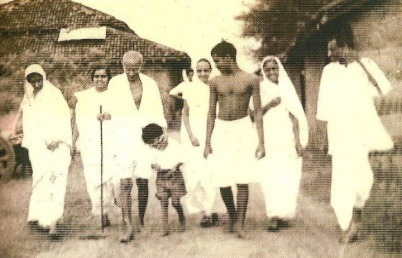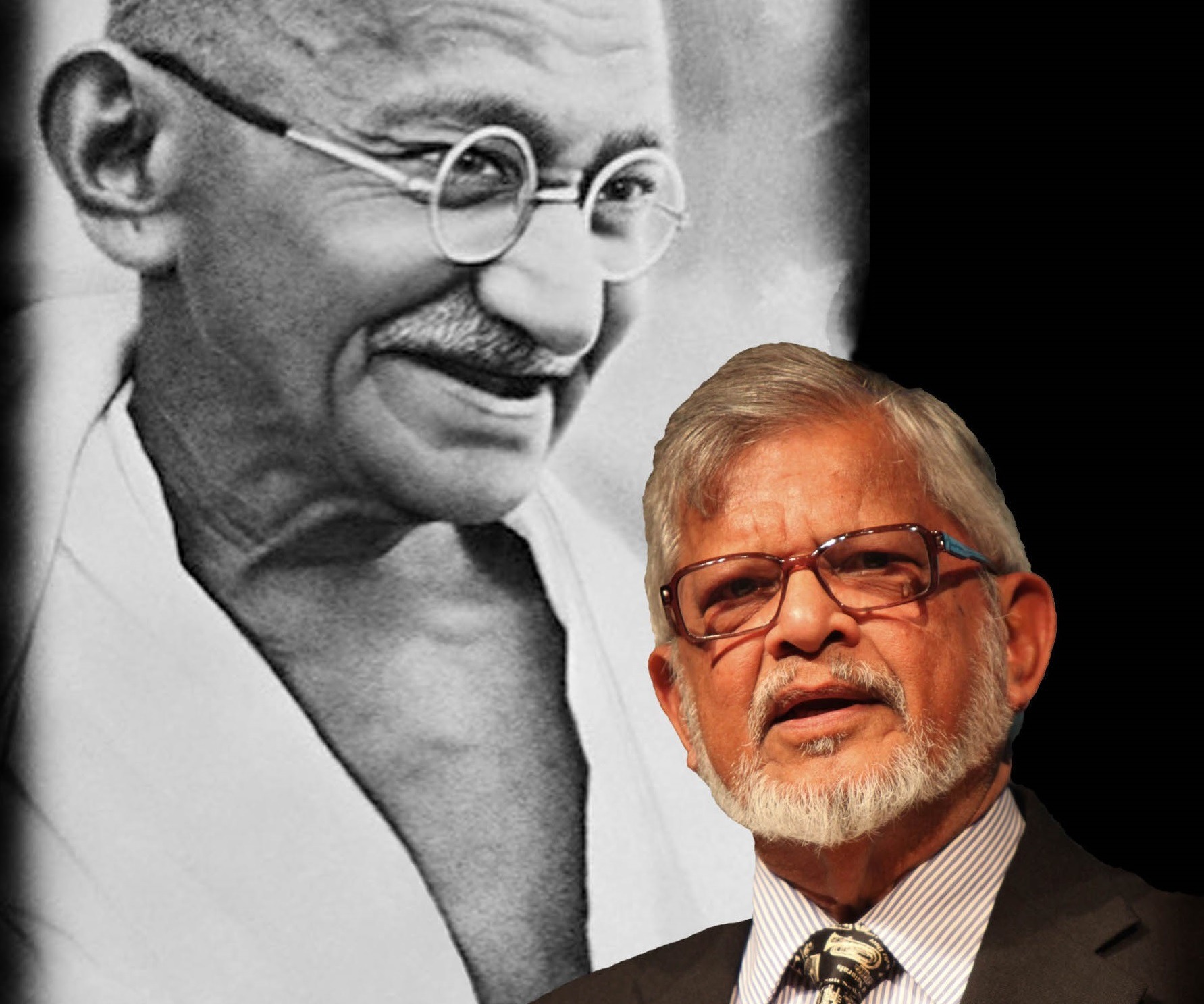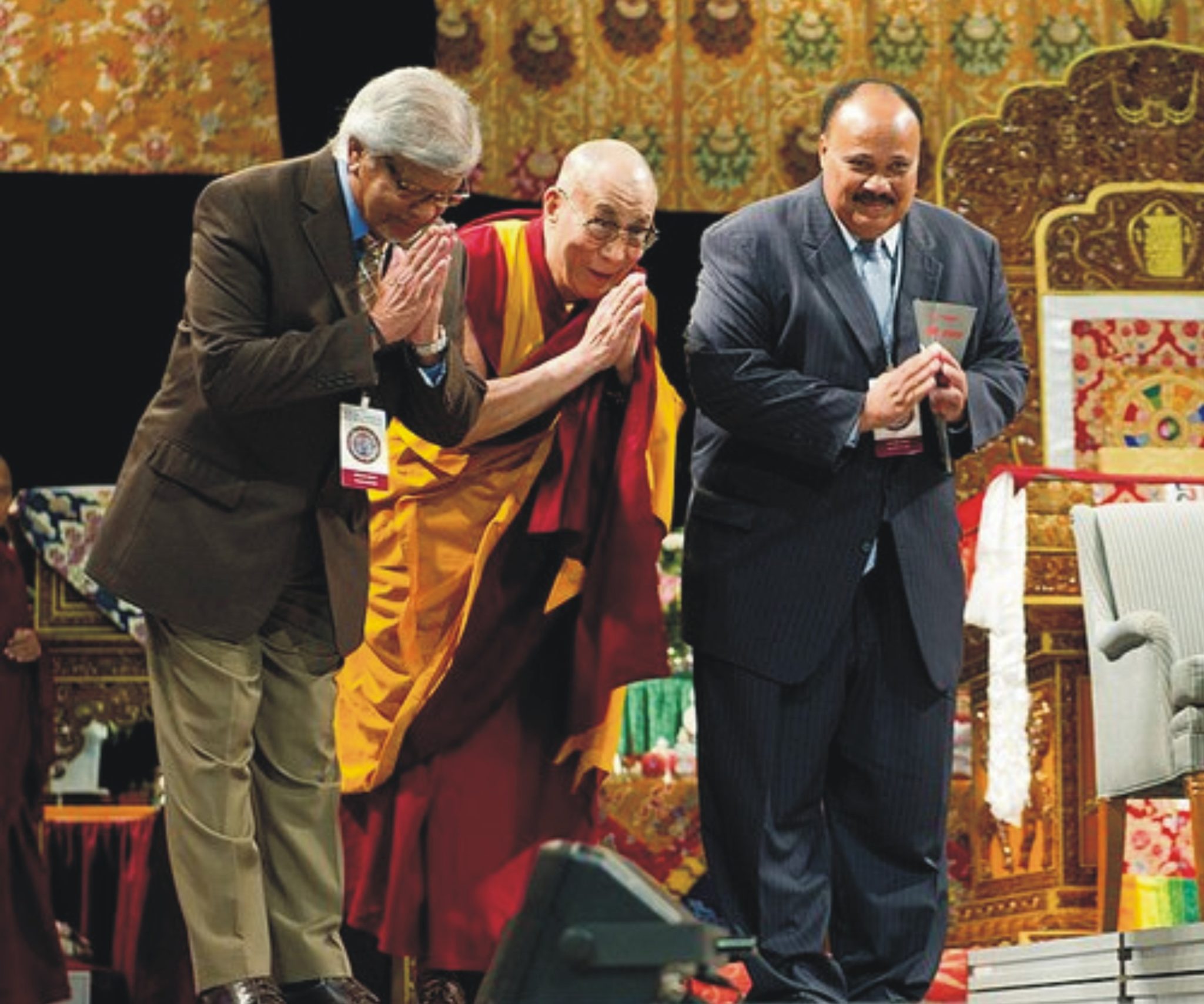Arun Gandhi was born in 1934 in Durban, South Africa and is the fifth grandson of India's legendary leader, Mohandas K. “Mahatma” Gandhi. He was recently invited to speak at the 8th forum for the future of Agriculture in Brussels. The Brussels Times held an exclusive interview with him to hear about his personal views and thoughts on life, sustainability, prejudice, violence and racism.
Journalist for over 30 years, he retired as the Deputy Editor of The Times of India. Arun Gandhi has internalized the philosophy of Mahatma Gandhi in his personal life and helped spread his lessons through lectures and workshops in the academia, as well as public and private institutions. As a social political activist he has been involved in numerous associations to help shape policy makers. He is a regular collaborator with the Martin Luther King Centre of Atlanta and is continuously engaged in organisations worldwide to help transform and eradicate racism and discrimination through the philosophy of non-violence.
Q: You were born in South Africa but also spent a considerable amount of time with your grandfather Mahatma Gandhi in India when you were young. Can you tell us about those years and how they influenced your life?
A: My father was the second son of my grandfather and the only one who lived in South Africa in order to continue Gandhi’s work there. As you may know, Gandhi lived in South Africa as a young lawyer. At the age of 23, he experienced a defining moment when he became a victim of racism. The year was 1893 and he had bought a first class train ticket. As the ticket collector came to control, the police was called and he was thrown out of the train. He had a ticket, but was still now allowed to be there, and the reason was the colour of his skin. He was deeply upset and wanted to get justice. But he wasn’t able to use violence and that’s how it became his philosophy.
When I myself was a child in South Africa, I was often abused, insulted, beaten and discriminated against just because of the colour of my skin. It invoked lots of anger and resentment inside me. At the age of 12, I returned to India and spent two years together with my grandfather before he was assassinated. This period was life changing for me.
The first lesson that I learned from Gandhi was about anger. It is like electricity or an energy that is a double edged sword in that it can either be used intelligently or abused. We must learn how to use anger for the good of humanity rather than to cause violence.
The second lesson that I learned was about non-violence. When we speak about violence, we automatically usually think about it is as something physical. But Gandhi showed me that we commit passive violence all the time via negative thoughts, intentions and actions. And we also waste and destroy things in our everyday life. In the US for example, $120 Billion worth of food are thrown away every year. These are all different forms of violence.
Every day when I went to bed, Gandhi asked me to think about everything that had happened during the day and place the different actions and events into two different boxes; physical violence and passive violence. It is easy to determine an act of passive violence – you just ask yourself the question “if someone were to do this to me, would it hurt me or be good for me?”
We usually don’t recognize all the non-violent actions that we commit. But they are often the seed and the DNA that cause anger that eventually provokes and stimulates physical violence in others. I think this is a very important lesson because we have a tendency to only judge the world based on physical actions. However, intentions and attitudes are as important. If we don’t change this, there will never be peace.
In short, Gandhi’s influence was very strong on me. He did what he did as it was very natural and genuine to him and he managed to change people’s attitudes.
A very young Arun with his Grandfather
Q: So how can one turn anger into something good then?
A: Find out what the issue was, the root of the anger. In my case it was discrimination. So I used my anger to try to influence people to not use discrimination and to respect each other.
If we don’t do this, anger leads to physical violence. So we must learn to use it intelligently. This is of course easier said than done, but life is not easy. It has its challenges and this philosophy requires a lot of commitment.
In my case, I have practiced it a lot. And you become better and better the more you practice. Every day you have to make an effort. It is a life long struggle.
But the hard work is worth it. After practice, your perspective on anger changes completely. Rather than viewing anger as something negative, you see it as an opportunity. An opportunity to use its energy to make something good.
Q: You came to Brussels to hold the opening speech on the forum for the future of Agriculture. Given that the world population is growing with estimates that we will be over 9.5 billion people by 2050, how do you predict that we will be able to sustain ourselves so that we can feed the world’s population while at the same time not destroy our environment?
A: Different ways. For instance, today all the affluent nations in the world already waste a lot of food. We have to improve the distribution of food. We would then eat less and have better overall health. Today, too many people in the west overconsume and that leads to obesity and other health issues.
In addition, we have to take action to reduce population growth. But this is very muck linked to poverty. Poor people don’t look at the decision of increasing the size of their family as “additional mouths to feed”, but rather as “additional hands to help with work”. If we can eliminate poverty, population growth would drop substantially. This is scientifically proven.
But unfortunately the West doesn’t want to eliminate poverty since it effectively indirectly benefits from it. The US for example, has for years been talking about giving more rights and legalizing Mexican workers. But nobody passes this law. Because then employers would have to pay them legal minimum wages and provide them additional benefits. The status quo is comfortable as it allows the employers to continuously exploit the poor in a form of “slave labor”. This is going on intentionally albeit quietly and passively. The same thing is happening in India.
Q: You have been part of many associations and projects spreading the teachings of Mahatma Gandhi. What do you consider your greatest achievements so far?
A: Much of it is something you can’t measure. I saved the lives of 128 babies, abandoned by their families and by the state. Some are now in Sweden, some in India. That is unmeasurable. I was also fortunate to be able to help around 800 homeless people. And do it constructively so that they in turn can help other people in a “pay it forward” spirit. Since the 1970, the Sangli Co-operative project has affected the lives of 5-6 million people in India.
Then I go out and speak. Some see me as a peace farmer. I plant peace seeds and hope that they will grow and yield a good crop. Many of the people I meet and speak to get back in touch later in their lives as they develop their own projects.
Q: “Be the change you wish to see in the world” is a motto that you advocate. Today world economies seem ever more interconnected. We can speak and chat to someone on the other side of the world in the blink of a second. Do you believe that we are in a better position to eradicate racism?
A: I don’t think so. We need more understanding. Not more communication. We need to learn about each other. The media and communication only provides little snippets of information. It can have the opposite effect. The first time that I visited Sweden for example, my friend told me to not bring my wife. ‘Haven’t you heard that in Sweden women walk around naked?’ he asked me.
Jokes aside, there are misconceptions about every country and culture. And they in turn lead to tension. And prejudices will not go away simply because we have better internet connections. New technologies have reduced our attention span to 2 seconds. People don’t really read and understand the messages anymore. People need to start to think and learn again.
It is possible to eradicate racism however, through education. Unfortunately education at the moment is mostly focused on the pursuit of a career. Students are not taught how to talk to, identify with, relate to or understand people. We need to start teaching these things more. There has to be less emphasize on career building and more emphasize on character building.
Unfortunately I believe that we are not going in the right direction. Schools and academic institutions today are like factories. If things don’t change, prejudice will never disappear.
Q: Can you tell us more about the goal of “the big change”?
A: I would like to see a world of peace and harmony, where everyone can get along with each other. Where we don’t look at nation, race or religion and we just respect each other as human beings.
This can only happen from the grassroots. Not from top-down. The laws can only protect and enable us to sit together. But they cannot force us to love and respect each other. That has to come from the inside.
It is the training you get at home and at school. All of the things you put together. Respect is a universal value. Not a religious value. And universal values transcend religion.
Arun Gandhi also runs the Gandhi legacy tours in India and South Africa. For more information and to get in touch, please visit: www.gandhitour.info
Boré Kedober
THE BRUSSELS TIMES


